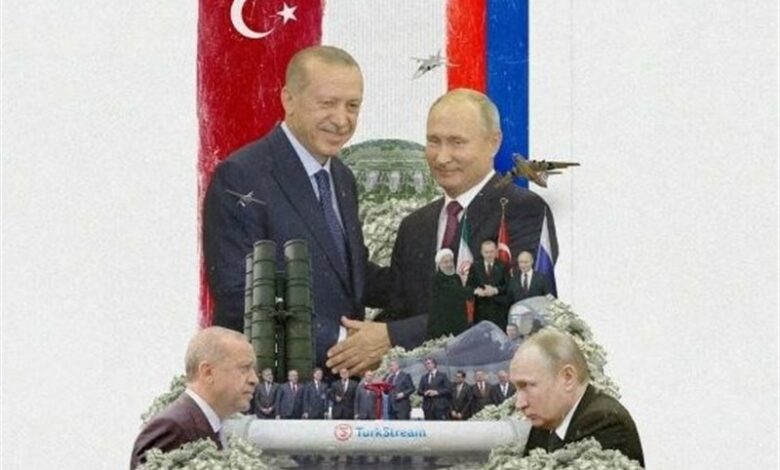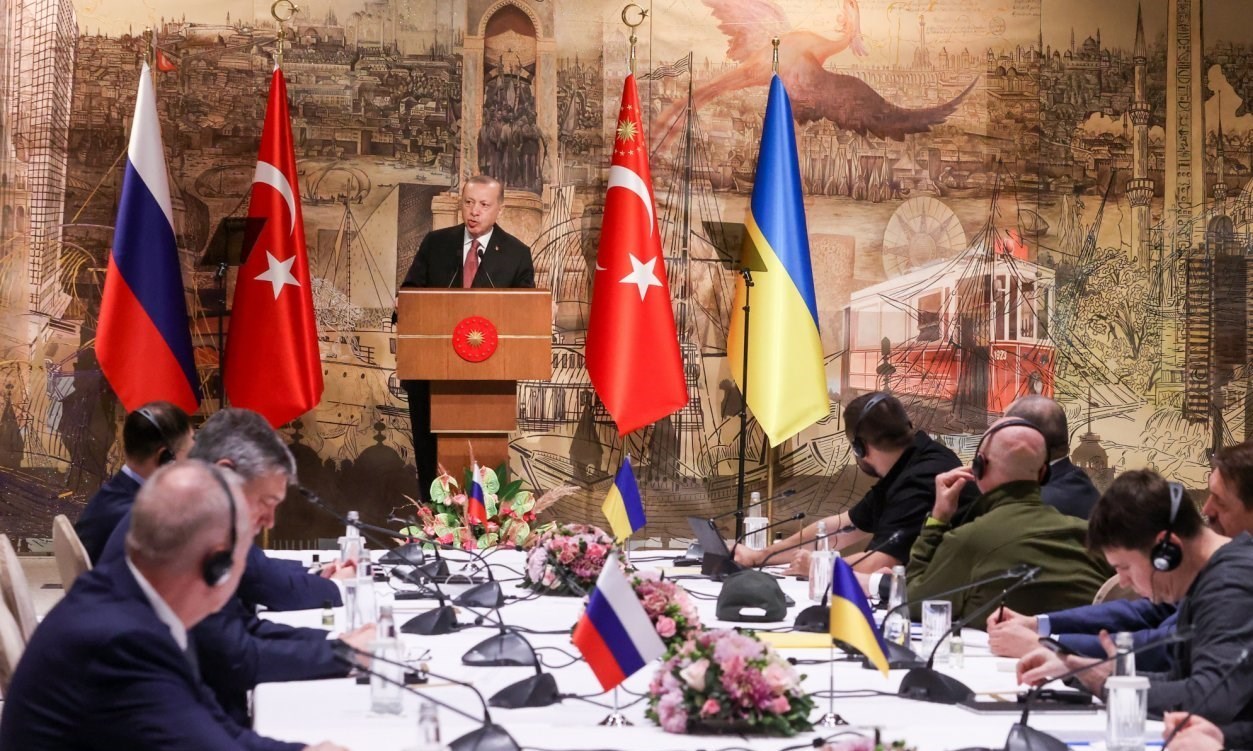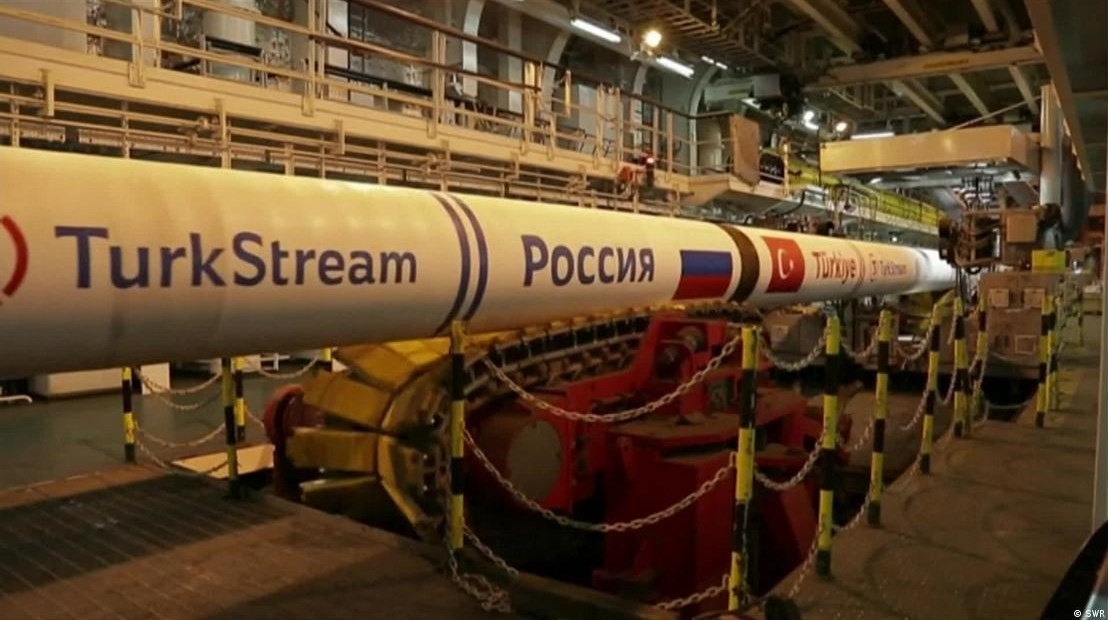Will orientation towards the West distance Turkey from Russia?

| Even without an official agreement, the Turkish side with the Russian gas swap can make a huge profit for Ankara due to the lack of access of the Russian Gazprom company to the European gas market due to the sanctions imposed on this country. |
According to the international group Tasnim news agency, Turkey from which side in Does Russia and Ukraine support the war? The answer to this question can be different.
On the one hand, Ankara supports Kiev militarily and diplomatically, and Recep Tayyip Erdogan promises never to return the Ukrainian territories seized by Russia to not recognize (Turkey adopted the same position after the annexation of Crimea in 2014). Moreover, thanks to Turkey, Ukraine continues to export food through the Black Sea. Ankara first played a key role in signing the grain agreement, and after the failure of this plan, it provided its territorial waters to Ukraine to create a grain transportation corridor. The West is not united against Russia. In addition, Turkey has become one of the main buyers of Russian oil after China and India. Istanbul Airport has become the most important flight center to Russian cities and in the coming days we will witness the presence of Russian President Vladimir Putin in a European country. Turkey has so far conducted several maneuvers between Russia and the West. data and approached one of the parties each time. At the same time, Erdogan has been leaning towards the United States and its allies in his latest move.
At the end of January, the Turkish parliament finally approved Sweden’s entry into NATO. All NATO member countries are required for new countries to join this organization. This issue has remained a bargaining chip between Turkey and the West for a long time, and the Turks were waiting for concessions from Stockholm and Washington.
Erdogan apparently got what he wanted. Shortly before the vote in the Turkish parliament, the US State Department approved a contract to sell 40 new F-16 fighter jets to Turkey and upgrade 79 other fighter jets for $23 billion, which was not opposed by Congress.
Lockheed Martin, which produces the F-16, has so many backlogs that the delivery of the Turkish order will take years, but this deal is politically very important for the Turks. Turkey needs these fighters to make up for its exclusion from the F-35 development consortium, and this was a punishment for Ankara for acquiring Russian S-400 anti-aircraft missile systems in 2019.
Moscow-Ankara military deals strained relations with Washington so much that the United States authorities even applied the Countering America’s Enemies Through Sanctions Act (KATSA) to Ankara and listed Turkey’s arms procurement agency. sanctions added.
However, over the past year, Turkey and the United States appear to have put aside some differences and cooperated on issues ranging from NATO expansion to engagement in the Middle East. In the midst of the Gaza war, they have resumed.
Furthermore, Turkey seems ready to comply with secondary US sanctions against Russia. After Joe Biden signed an executive order in December cracking down on foreign companies that cooperate with Russia’s defense complex, a number of Turkish banks began closing the accounts of Russian companies. According to Kommersant (Russian news agency), some exceptions were applied only to branches of foreign banks in Russia.
At the same time, Turkey has expanded its presence in the Black Sea. On January 11, Defense Minister Yashar Güler announced the start of naval exercises with the participation of Romania and Bulgaria in the Black Sea. This exercise includes maritime demining, patrolling ships, helicopters and drones. The aim of this naval exercise is to clear sea lanes of mines that have seriously hampered shipping in the Black Sea since the start of the Ukraine war.
In theory, other NATO members can to join this naval group, but Turkey carefully prohibits the international norms that do not allow the military ships of non-coastal Black Sea countries to pass through the Bosphorus Strait during war and fully supervises its implementation.
However, despite the importance of the steps described, these actions represent more of a tactical adjustment than a review of Turkey’s foreign policy strategy. Neither Erdogan personally nor the Turkish elites are generally turning away from Russia.
Energy trade is at the core of relations between Moscow and Ankara. According to Reuters calculations, Russian crude oil imports to Turkey reached a record 400,000 barrels per day in November, which is 14 percent of Russia’s total seaborne oil supply.
This growth is likely to continue in 2024. In particular, the new contract between Lukoil (Russian oil company) and Turkey’s Estar refinery located near Izmir includes the supply of 200,000 barrels of oil per day and the granting of a loan in the amount of 1.5 billion dollars.
Apparently, some of the Russian oil currently supplied to the Lukoil refinery in Bulgaria will be diverted to Turkish refineries. (This refinery is subject to a temporary exemption from EU sanctions).
The new agreement shows that Turkey intends to secure its role as the main hub for Russian oil exports, including to the European Union. . In addition, Turkey is actively re-exporting diesel fuel and other petroleum products to the Russian Federation. It is worth mentioning that the import of these products to Turkey has tripled in 2023.
The issue is not limited to oil. Turkey has become an important destination for Russian natural gas exports. Gazprom’s transit contract with Ukraine expires at the end of this year, which means Turkish Stream may become the only gas export route from Russia to the EU. It has already concluded contracts with companies from Hungary and Moldova. Access to Bulgaria’s gas distribution system via the Trans-Balkan pipeline is also underway.
In other words, Turkey can buy Russian gas from Gazprom, mix it with gas from other sources. blend and resell to European countries seeking to diversify their energy suppliers. In 2023, during his visit to Turkey, Putin held talks on establishing a gas hub with his Turkish counterpart.
But even Without an official agreement, the Turkish side with the Russian gas swap can give Ankara a huge profit due to the lack of access of the Russian Gazprom company to the European gas market due to the sanctions imposed on this country.
At the same time Washington also prefers not to have a diplomatic or military conflict with Turkey, but to resolve its issues with Ankara at the negotiating table. Both the United States and Russia have learned to cope with the political maneuvers of Recep Tayyip Erdogan.
Author: Mehdi Saif Tabrizi, researcher on Russia and the Caucasus
end of message/
| © | Webangah News Hub has translated this news from the source of Tasnim News Agency |




